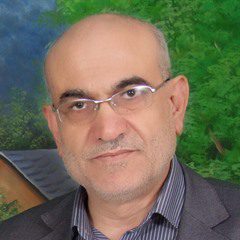The media has played a vital role in the Arab Spring, from social networks to TV stations. It would be foolish to think otherwise, but if the media was not available the old regimes would have found it much easier to suppress the wishes of the people.
Commentators have spoken of this before, including the fact that some sections of the media backed he old regimes until the last possible moment, particularly television channels. For some the decision to do so was economic as much as political.
What is more important now is the media position towards the new democratic governments on the one hand and attempts to persuade the general public that the revolutions were not such a good things so that they won’t spread.
It would be unfair to focus on media attitudes towards the Islamists in isolation, not least because there are investors who do not want the Arab Spring to be successful, even as a concept, regardless of the ideology of the newly-elected governments. Thus people have to be put off the idea not only of the Arab Spring but also any political reform at all.
The media’s role in pursuing governments while giving prominence to violence and chaos is very obvious in Egypt and Tunisia. This applies to foreign media as well as local outlets. A similar situation exists in Yemen, where media loyal to the old regime is still in evidence.
Al-Jazeera’s support of all of the revolutions (despite limited coverage of Bahrain’s protests) remains unique. International outlets generally take an anti-revolutionary stance, even subtly. It is worth noting that the media funded by Iran shares that position and doubts the essence of the Arab Spring; it apparently only has eyes for what is happening in Bahrain.
What we are most concerned with is the local media in the revolutionary states. Such outlets are fighting a vicious media war against the elected authorities, influenced ultimately by investors, whether they are the billionaires of the former regimes or foreign Arab interests fearful of revolutionary democracy in their own countries.
Egypt’s Minister of Information confirmed the existence of this war when he spoke about $875 million being spent by television companies targeting the elected government since the fall of Mubarak, even though their total income is only $220 million. The difference, a staggering $655 million, had to have been received from local or foreign investors.
In Tunisia most of the media outlets, including those paid for by the people, stand against the elected government. If the latter attempts to intervene, it is accused of wishing to suffocate freedom of expression.
It is doubtful if there is any president on the face of this Earth insulted by the media of his own country as much as Mohamed Morsi is in Egypt; he is even insulted on morning talk shows usually discussing family affairs and non-political matters. Despite this, protesters condemn “limited” freedom of expression, a line repeated by Americans because the host of a satirical show was taken to court after some citizens and lawyers pressed charges against him on the grounds of insulting the President and disrespecting Islam, even though the president himself did not prosecute the case. This suggests that there are those who want to give the press immunity from complaints by citizens, which does not happen in any democracy in the world. Freedom of expression has limits in a responsible society.
Such attitudes make a mockery of a free press but we must deal with it wisely until political and social conditions are stable. Is there any country in the world where approval is sanctioned for the media to work against that country’s own best interests using dubious foreign money to encourage violent protest?
Freedom of expression and the ability to criticise the government is a public benefit of the Arab Spring revolutions, but that does not mean media anarchy. No “free press” is ever entirely free and freedom must be used responsibly. Journalists are not gods exempt from accountability; they are, as we well know, among the most susceptible to temptation and corruption, and that is what we must guard against.
The views expressed in this article belong to the author and do not necessarily reflect the editorial policy of Middle East Monitor.











